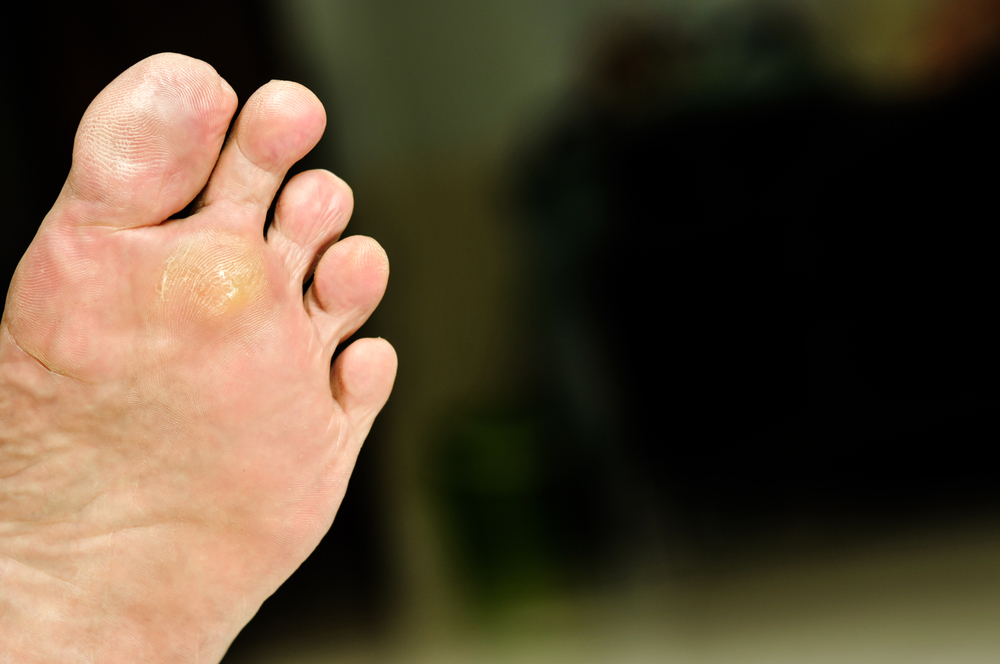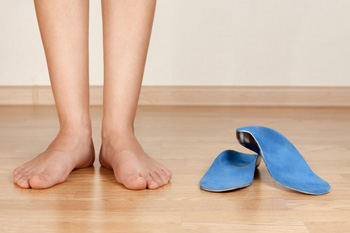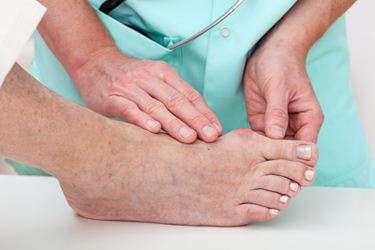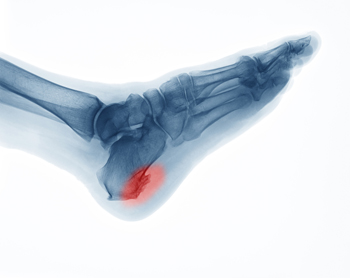 Warts on the bottom of the feet, known as plantar warts, are a common condition. About 25% of people get plantar warts at some point in their lifetime, often during childhood or adolescence. Plantar warts are caused by the human papillomavirus, also known as HPV, and can be highly contagious. To prevent plantar warts, avoid walking barefoot in damp public areas, such as community swimming pools or water parks. Wear clean cotton socks and change them regularly. Inspect your feet and take extra precautions if you notice a cut or scratch, as these may make you more susceptible to infection. If you or someone close to you has a plantar wart, it is suggested to keep it covered with a bandage in order to avoid spreading the virus to others. To avoid the risk of contagion or infection, it is recommended that you consult with a podiatrist right away.
Warts on the bottom of the feet, known as plantar warts, are a common condition. About 25% of people get plantar warts at some point in their lifetime, often during childhood or adolescence. Plantar warts are caused by the human papillomavirus, also known as HPV, and can be highly contagious. To prevent plantar warts, avoid walking barefoot in damp public areas, such as community swimming pools or water parks. Wear clean cotton socks and change them regularly. Inspect your feet and take extra precautions if you notice a cut or scratch, as these may make you more susceptible to infection. If you or someone close to you has a plantar wart, it is suggested to keep it covered with a bandage in order to avoid spreading the virus to others. To avoid the risk of contagion or infection, it is recommended that you consult with a podiatrist right away.
Plantar warts can be very uncomfortable. If you need your feet checked, contact one of our podiatrists from Foot Health Center of Merrimack Valley. Our doctors will assist you with all of your foot and ankle needs.
About Plantar Warts
Plantar warts are the result of HPV, or human papillomavirus, getting into open wounds on the feet. They are mostly found on the heels or balls of the feet.
While plantar warts are generally harmless, those experiencing excessive pain or those suffering from diabetes or a compromised immune system require immediate medical care. Plantar warts are easily diagnosed, usually through scraping off a bit of rough skin or by getting a biopsy.
Symptoms
- Lesions on the bottom of your feet, usually rough and grainy
- Hard or thick callused spots
- Wart seeds, which are small clotted blood vessels that look like little black spots
- Pain, discomfort, or tenderness of your feet when walking or standing
Treatment
- Freezing
- Electric tool removal
- Laser Treatment
- Topical Creams (prescription only)
- Over-the-counter medications
To help prevent developing plantar warts, avoid walking barefoot over abrasive surfaces that can cause cuts or wounds for HPV to get into. Avoiding direct contact with other warts, as well as not picking or rubbing existing warts, can help prevent the further spread of plantar warts. However, if you think you have developed plantar warts, speak to your podiatrist. He or she can diagnose the warts on your feet and recommend the appropriate treatment options.
If you have any questions please feel free to contact one of our offices located in North Andover, and Tewksbury, MA . We offer the newest diagnostic and treatment technologies for all your foot and ankle needs.











